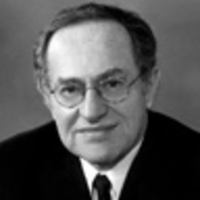Whenever a celebrity dies of a self-administered drug, particularly heroin, efforts are made to locate and prosecute those who provided the drug. As I wrote back in the 1980’s, following the overdose death of comedian John Belushi and the prosecution of Cathy Smith, the woman who provided him the drugs, “That issue [holding the supplier criminally responsible for the death] seems to capture public attention primarily when famous people overdose. The tragic deaths of basketball player Len Bias and the late Robert Kennedy’s son David generated demands for prosecution of the suppliers. The daily street deaths of dozens of faceless addicts rarely even provoke an investigation.”
Now the stakes have gotten higher as some states have applied the “felony-murder” law to such deaths, while others have enacted specific statues turning the criminal act of providing drugs into a homicide if death results.
It is easy to understand why the public demands homicide prosecutions against drug providers whose product caused the death of a beloved celebrity like Philip Seymour Hoffman. A person lies dead; someone must bear responsibility for his death. It is easy to scapegoat the drug provider. But is it fair to single out the provider whose heroin happened to have killed a celebrity (or anyone else)?
The answer is plainly no. All drug providers are equally culpable—as a matter of morality—regardless of whether their customer happened to live or die. Put another way, the dealer who provided heroin to Hoffman a few weeks ago is just as morally culpable as the one who provided the heroin that turned out to be lethal. To be sure, if the lethal dose had contained especially dangerous additives, and if the provider didn’t tell the customer about the added danger, that would change the moral equation. Or if the provider sold heroin to children or to adults who he or she knew were particularly vulnerable, that, too, might be different. But there is no acceptable moral distinction between two dealers who sell the same product, in the same way, to the same people—and one of their customers, for reasons unrelated to anything the dealers did, happens to die. Nor is there any such distinction between those dealers who sell to celebrities and those who sell to obscure street addicts (except that celebrities have more resources and options to try to break the habit, so dealers who sell to street addicts may perhaps be more culpable, though they are less frequently prosecuted).
Why then does legal culpability not follow moral culpability? Why does the law punish more severely those dealers whose clients happen to die from an overdose? The answer goes beyond the supplier-addict issue. In general, the law punishes equally culpable conduct differently depending on the result, even when the result is completely fortuitous and beyond the intent of the actor. Consider two equally drunken or drugged drivers who become unconscious behind the wheel while driving at the same speed in the same neighborhood. The car of one of them crashes into a school bus resulting in the death of several children, while the car of the other one pins harmlessly against the wall a bank robber escaping with the loot. The first is convicted of multiple homicides, while the second is given a reward, despite their morally indistinguishable conduct. In philosophy this is called “moral luck”—an oxymoron if there ever was one, since luck, which is random, can never be moral, which is purposive.
But the law insists on judging legal culpability by reference, at least in part, to results. Hence the felony murder rule, which says that if a defendant has committed a felony (such as selling heroin) that causes death (such as by an overdose), the original felony (sale of heroin) is escalated to murder. In some jurisdictions, felony murder, even when the death was utterly unpredictable and fortuitous, carries the death penalty. This rule, which originated in the British common law, has now been abolished in Great Britain and most other western countries, but it endures in the United States, where it is often applied in a Draconian manner, turning our courts into betting parlors where a form of legal Russian roulette is played with the lives and liberty of defendants.
In the case of Philip Seymour Hoffman, the issue may be a bit more complicated, since New York’s felony murder law specifies the felonies that can serve as a basis for a murder charge and the sale of heroin is not among them. Moreover, under the traditional felony murder rule, as well as under ordinary homicide law, the death must have been caused by the defendant’s actions. The question would then arise as to whether Hoffman’s decision to inject himself in the manner and dosage that killed him constituted an intervening cause that broke the chain of causation or was not reasonably foreseeable to the defendant. More generally, whether Hoffman’s entire history of addiction, rehab, and re-addition—which the particular dealer or dealers at issue did not cause—was the real cause of his tragic and untimely death.
There were many fingers around the syringe that administered Hoffman’s final fix. To attribute sole responsibility to the dealer who happened to supply the doses of heroin that ultimately killed Hoffman would neither do justice to the dead nor prevent future tragedies that grow out of the culture that produces far too many heroin deaths among celebrities and ordinary addicts.
Professor Dershowitz’s latest book is his autobiography, Taking the Stand: My Life in the Law.






